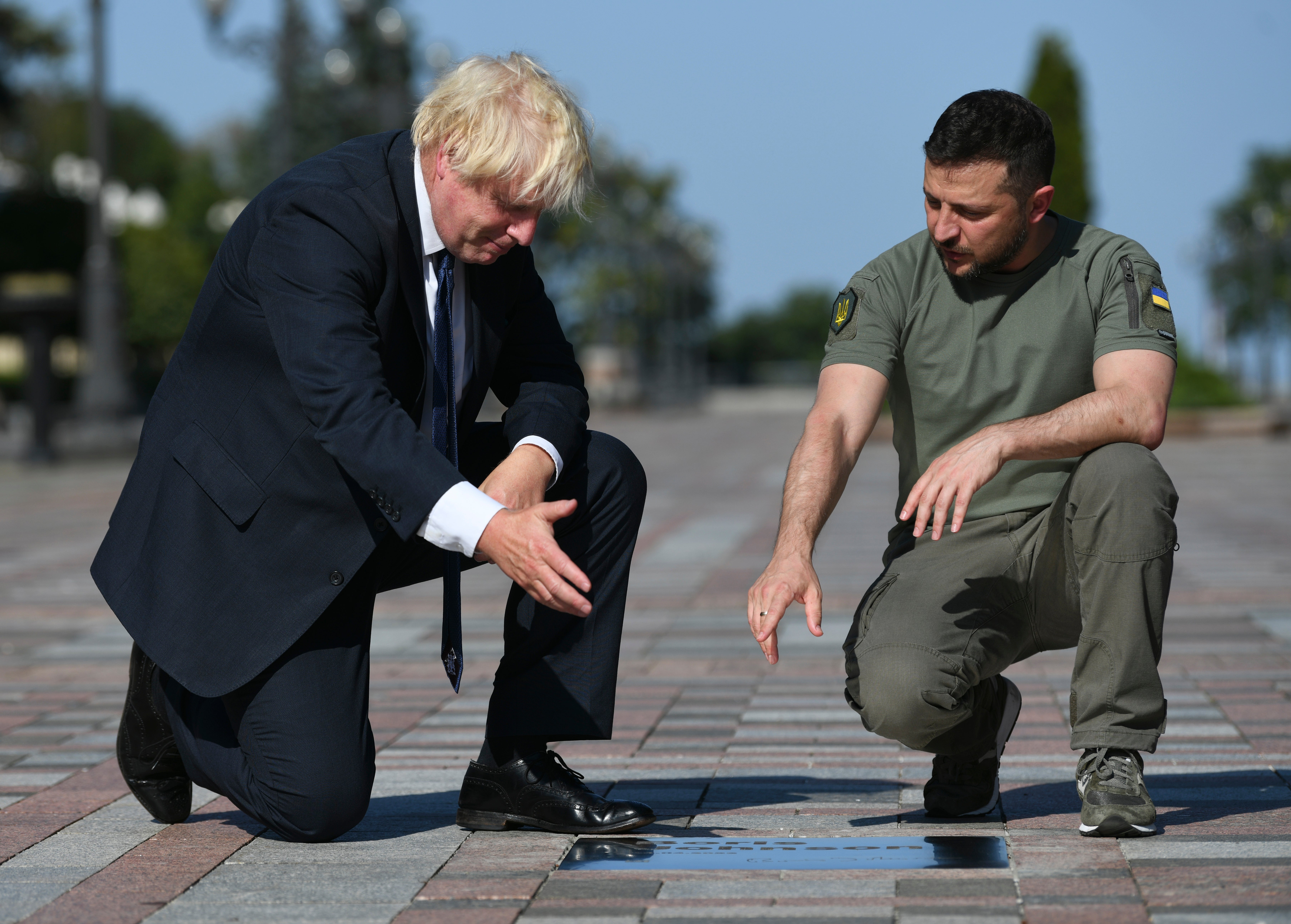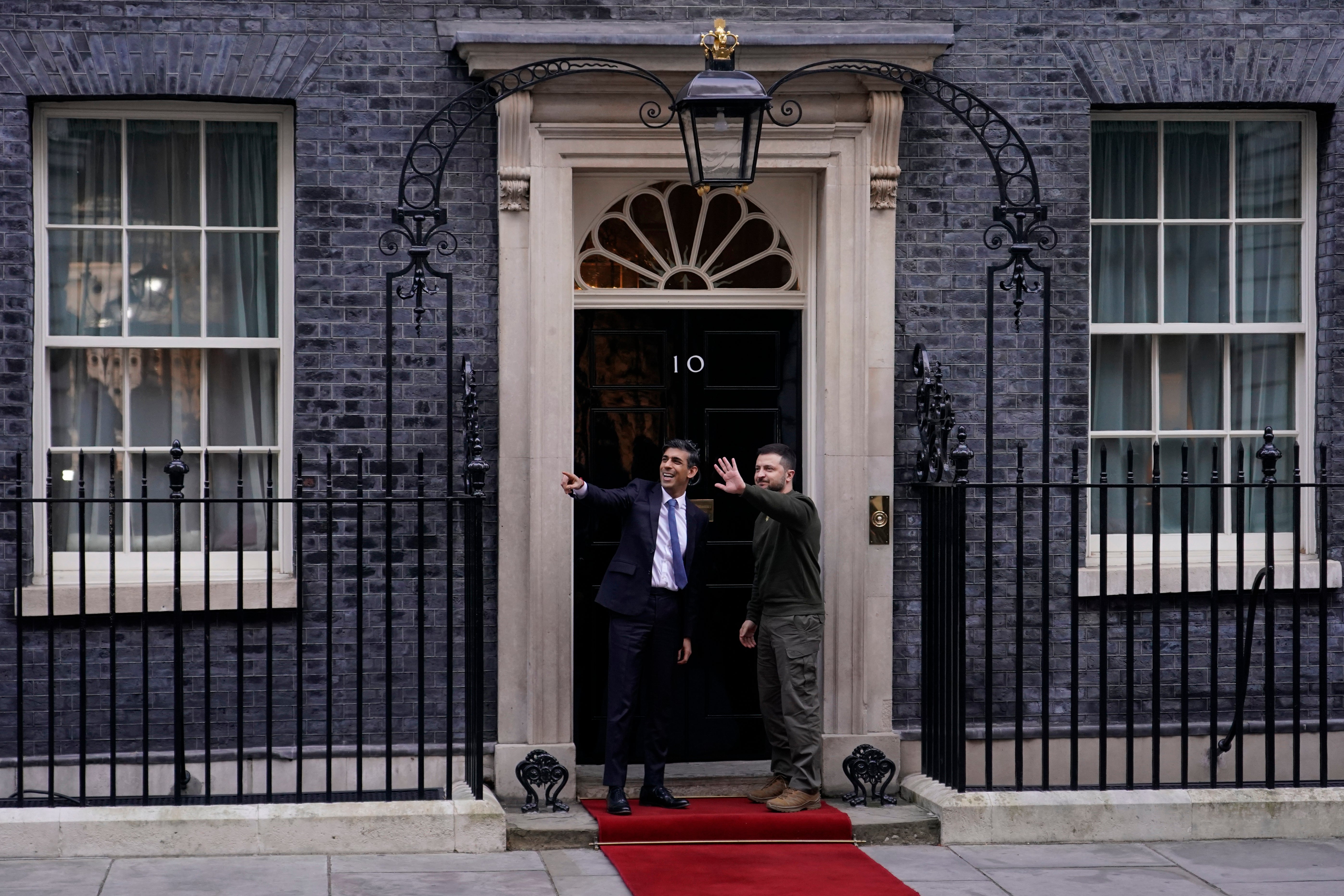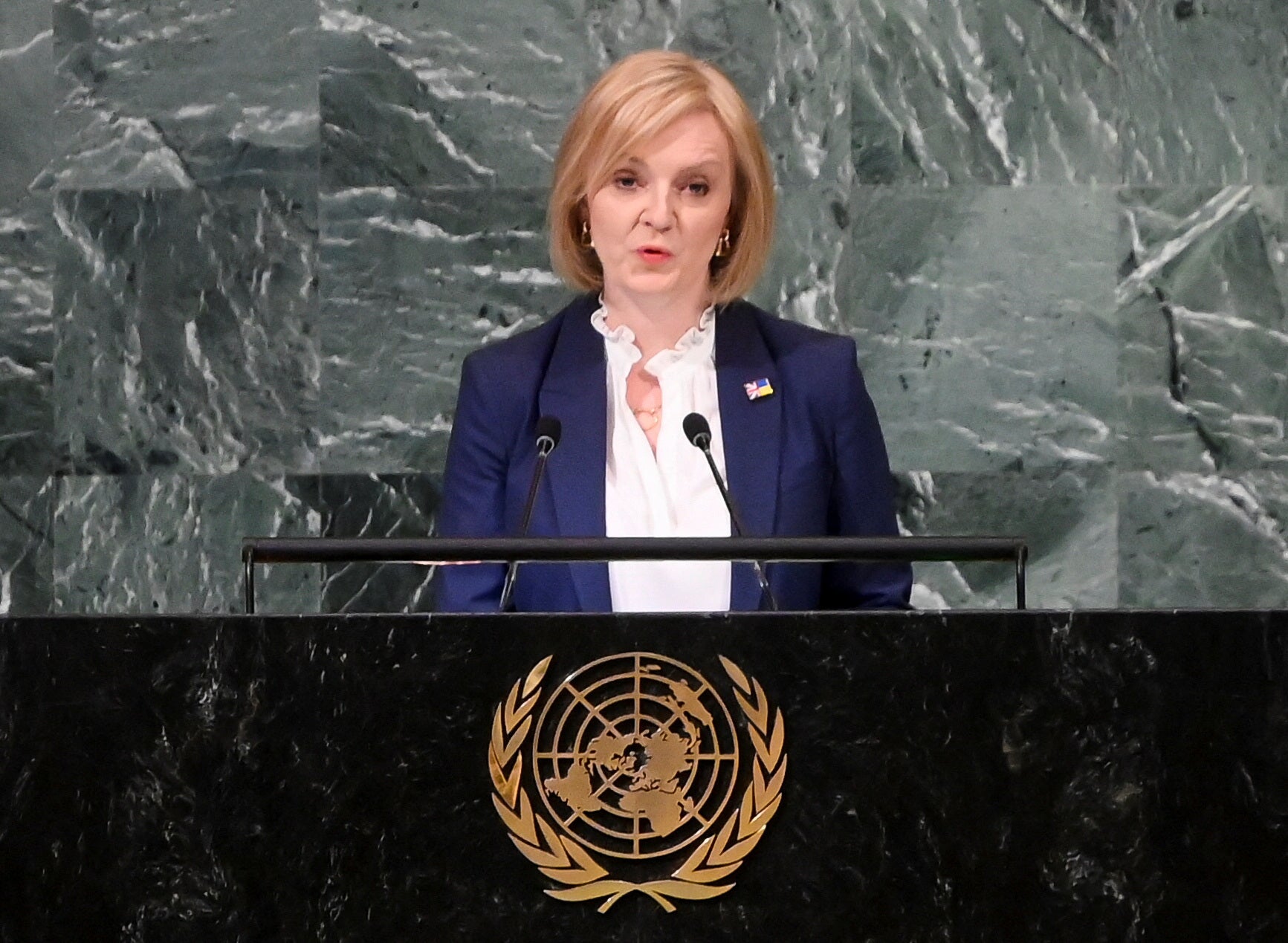How Britain – and Boris – led the way in global fight against Putin
Ukraine – a year of war: The UK has been a driving force behind the coalition of Western nations supporting Kyiv with weaponry and billions of pounds of aid, writes Andrew Grice


Rishi Sunak told the cabinet on Tuesday he was struck by the number of people at last weekend’s Munich security conference who noted that “UK leadership had played an important part in the global response to Russia’s invasion of Ukraine”.
For once, it wasn’t just spin. I’ve talked to some of the participants in Munich. They confirmed the plaudits for the UK, and said the prime minister made a good impression, describing him variously as “serious,” “smart” and “trustworthy.” Not everything went according to plan for Sunak. He spoke to a half-empty hall because, after she introduced him, the US vice president, Kamala Harris, departed – in her 35-car motorcade. Security staff closed the hotel entrance, so people couldn’t get in to hear the PM. (There was much grumbling in the margins about the intense US security, which saw even a furious Olaf Scholz, the German chancellor, caught in a 20-minute holding operation on his home soil.)
Sunak’s message went down well for those who did hear it. He told the conference the West needed to do more to boost Ukraine’s long-term security, saying: “We must give them the advanced, Nato-standard capabilities that they need for the future. And we must demonstrate that we’ll remain by their side, willing and able to help them defend their country again and again.”
The architect of Britain’s prominent role in Ukraine was Boris Johnson, who displayed strong leadership after the Russian invasion. Whatever his many faults, notably his failure to uphold standards in public life, even Mr Johnson’s most severe critics concede privately that his world-leading diplomatic offensive on Ukraine was his finest hour. He deserved his hero status in Ukraine itself, and in the eyes of Zelensky, who visited the UK first on his tour of Europe this month.
The unexpected war on Europe’s soil allowed the UK to rebuild some bridges with the EU that had been badly burned by the 2016 Brexit vote, and by the fraught negotiations that followed.
Relations that were in the deep freeze started to thaw: officials in London and Brussels began to talk again and symbolically, Liz Truss, then as foreign secretary, even attended a meeting of her EU counterparts. Mr Johnson’s stance proved to be good public relations for a UK that looked in danger of becoming isolated in the post-Brexit world. But even some Brexiteers admit that the war reminded them that the UK had more in common with their European neighbours than they often care to admit.
Johnson’s resolute stance was continued – albeit briefly – when Ms Truss succeeded him. Some Mr Johnson and Ms Truss allies privately worried that Mr Sunak would not be as robust, noting his scepticism while chancellor about higher defence spending. Arm-wrestling with the defence secretary, Ben Wallace, over the size of his budget continues – not least because of UK commitments to Ukraine – but the government has not wavered in its backing for Volodymyr Zelensky under Sunak.
The list of the support the UK has offered to Ukraine includes £2.3bn in military assistance – with the government having said it will match, or exceed in 2023/24 – the second-largest contribution by an individual nation after the US. When that is combined with economic and humanitarian assistance, the UK has committed billions more. When it comes to weaponry, the UK has provided anti-tank missiles, artillery, air defence systems, armoured fighting vehicles, anti-structure munitions, and three M270 long-range multiple-launch rocket systems. Britain will also provide 14 Challenger II main battle tanks. The UK has also provided more 200,000 items of non-lethal aid, including body armour, helmets, night vision equipment, medical equipment and winter clothing.

Working with other nations on broad sanctions packages against Russia, the UK has moved against 1,200 people and more than 120 businesses since Russia's invasion started.
Now, Mr Johnson and Ms Truss are rattling Mr Sunak’s cage by urging him to send fighter jets to Ukraine. In part, this reflects their shared desire to make life difficult for him and, in Mr Johnson’s case, leave open the option of trying to make a remarkable comeback. Yet on Ukraine, the two former PMs have a strong case: the present military stalemate suits Russia more than Ukraine, which needs more western weapons now. Recent history is also on their side. As Mr Johnson told the Commons on Monday: “The story of the last 12 months is that sooner or later, having exhausted all the other options, we give them [the Ukrainians] what they need. If that is the choice – sooner or later – we should give them [planes] sooner.”
Despite Mr Johnson’s record on Ukraine, the UK’s reputation on the world stage was harmed by his readiness to break international law and by the economic turmoil during Ms Truss’ premiership. Mr Sunak’s route to repairing the damage is to hug the US close and improve relations with the EU, with our leadership on Ukraine helping to smooth that process at points. Politicians and diplomats from Europe and the US view him as someone they can trust – a verdict helped by Mr Sunak’s efforts in the wings of the Munich conference to reach a settlement with EU leaders on the Northern Ireland protocol. “He is not exploiting the issue as Johnson did,” an official from one EU member state said. “Everyone can see he is working in good faith.” Another added: “The UK is back.”

The UK public and political opinion has been and remains solidly behind Ukraine. On the day Mr Sunak became PM, he rang Sir Keir Starmer; the pair exchanged mobile numbers and agreed to maintain the bipartisan approach on Ukraine. This was epitomised earlier this month when Zelensky made his surprise visit to London, and an emotional speech in parliament’s Westminster Hall. On the same day, there was a rare outbreak of unity between the PM and leader of the opposition at prime minister’s questions, as they agreed with each other on the need to continue to supply weapons to Ukraine and to ensure the defeat of Russia.
Ukraine will not decide the next general election and it suits both Mr Sunak and Sir Keir to put aside the differences they have on most other issues. The relatively inexperienced PM wants to play the statesman, while the Labour leader wants to look like a PM-in-waiting. In fact, Sir Keir has the greater incentive to play it tough on Ukraine. It allows him to express Labour’s solid support for Nato, helping his drive to reassure voters his party has moved on from the Jeremy Corbyn era. Mr Corbyn’s initial refusal to blame Russia for the Salisbury poisonings damaged Labour at the 2019 election. The party was seen as unpatriotic by many voters in the red wall in the north and Midlands. Sir Keir has gone to the other extreme, using the Union flag as a backdrop as much as Tory ministers do.
UK politicians are on safe ground because of public opinion. Britons voted with their hearts after the invasion: 152,600 Ukrainians have been issued with visas after finding a sponsor to take them into their home under the Homes for Ukraine scheme.

A year on, there is little sign of public support waning. Britons are proud of the government’s actions: 71 per cent think the UK has made the best response to the Ukraine crisis, according to an Opinium poll for the Policy Exchange think tank. There is some evidence that Britons are among the strongest supporters of Ukraine around the world.
Like their counterparts on the continent, Britons tend to view the Ukraine crisis as a security issue, while Americans see it more as the fight to preserve democracy Joe Biden portrayed during his European tour this week.
No significant body of opinion in the UK opposes the policy on Ukraine. In contrast, some European diplomats worry that doubts on the Trumpian wing of the Republican party could have an impact on the US’s leading role in the run-up to next year’s presidential election.
Despite the West’s surprising degree of unity and resolve, divisions about the possible end game in Ukraine among EU members are visible just below the surface. The unity might not survive; France, Germany and Italy are among the potential wobblers, particularly if any negotiations between Ukraine and Russia take place. This is the giant elephant in the west’s room.
Although the UK’s financial commitment is huge, the war may prove easier than the peace for our politicians too. As one former minister put it: “There is little coherence in how the west is engaging with the war. It’s all about tactics, it was about tanks, now it’s air power. The bigger question – a strategy on Russia – is completely missing.”
Subscribe to Independent Premium to bookmark this article
Want to bookmark your favourite articles and stories to read or reference later? Start your Independent Premium subscription today.






Join our commenting forum
Join thought-provoking conversations, follow other Independent readers and see their replies
Comments